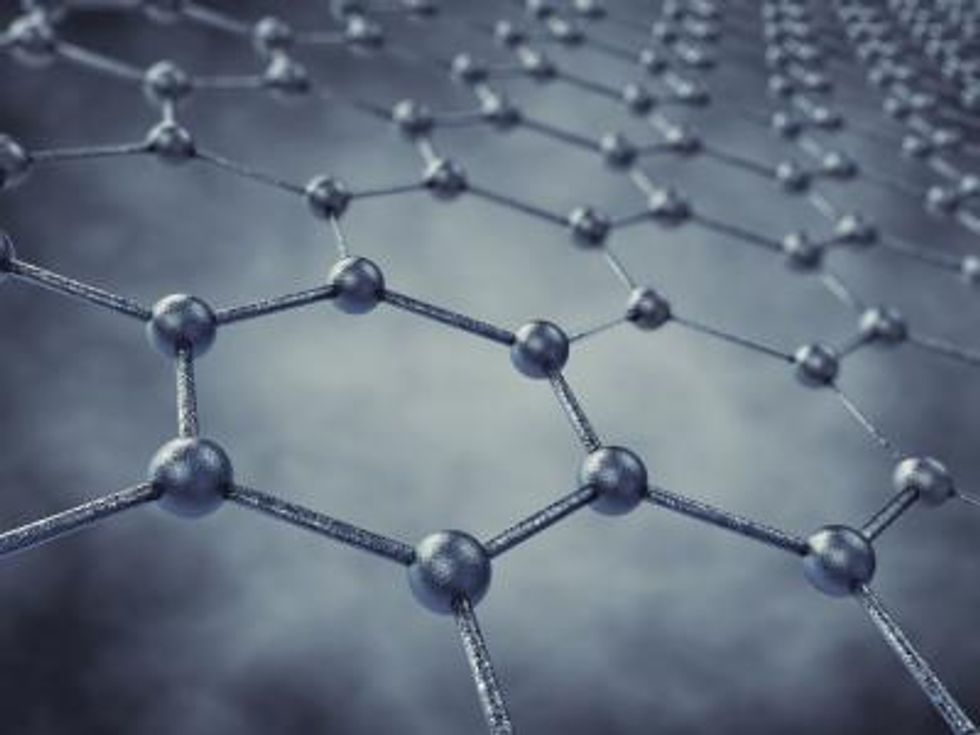Grafoid’s Dr. Chiu on Unleashing the Benefits of Graphene
Dr. Gordon Chiu, president, chief technology officer, director and founding partner at Grafoid, recently gave a TEDx Talk on the opportunities presented by graphene. Watch the talk here, then read on for a Q&A with Dr. Chiu.
When Graphite Investing News (GIN) last checked in with Dr. Gordon Chiu, president, chief technology officer, director and founding partner at Grafoid, a graphene research, development and investment company, he had just returned from this year’s Graphene World Summit.
Since then he’s kept busy, in part by giving a TEDx Talk on graphene. In it, he touches on the material’s properties, the opportunities it presents and what it will take to unlock them.
Watch the TEDx Talk below, then read on for a Q&A with Dr. Chiu.
GIN: In your TEDx Talk, you mention that graphene is not yet economically feasible, and thus there are no noteworthy commercial applications. But you’re also very optimistic that those issues can be resolved. Why are you so optimistic?
Dr. Chiu: Because of the fact that it’s such an important material — there is no other two-dimensional carbon material. And governments collectively — not even just one government — have made it their mandate to develop it. Developed countries, multiple governments have collectively been working together to motivate individuals to create an industry and also to motivate existing industries to explore graphene. We have an incredible tailwind.
If you look at solar power, lithium batteries and other industries that have gotten a lot of attention from governments, you will see incredible opportunities for things that were once unimaginable. But they’ve been around for a long time — solar energy has been around for over 10 years, lithium batteries have been around since the 1980s. Graphene has received 10 times the attention they have in an incredibly short amount of time; it’s been around only one decade.
That’s why this is just the beginning of scratching the surface — maybe even just peering into the surface, not even scratching it. This could absolutely be the beginning of something very exciting.
GIN: Your talk also includes a really good example of a tangible way that graphene can benefit regular people: lighter cars = cost savings = better economy. Do you have any other examples of how it can benefit people in their everyday lives?
Dr. Chiu: Given the limited amount of time, I couldn’t go into examples such as buildings that are resilient to earthquakes, or the ability to use graphene for medicine. For example, people with diabetes have to prick their finger every time they check their blood sugar. Nobody really likes that. But imagine if we could use graphene to make new devices that have better detection without having to be so invasive.
GIN: Do you find that people have more of an interest in graphene when you talk about those everyday types of benefits rather than its more futuristic applications?
Dr. Chiu: Ever since the last global recession people have become damaged, shell shocked. We’re in a deflationary environment, and most people say, “well I already have lots of things in my life. What does this really do for me, and how does it do it differently?” They need to see something practical. They want to know that something like this has some benefit to their lives.
The whole deflationary thing is also a level of exhaustion. People who become exhausted just say, “well, I’m going to just sit around and wait and not pursue anything. It could be great, but what if it’s not?” The “what if it’s not” has become louder ever since the global recession — people have given up.
But when you tell them about the possibilities, when you actually paint the relevance for them — that they could have the benefits now — they actually embrace the possibilities. They want to see this in their lifetime. Events like the TEDx Talk are catalysts because they reach out to people who are in defensive, protective modes and show them the possibilities.
GIN: On a less positive note, it sounds like one of the problems you see with graphene is that people are looking at it with perspectives that are rooted in the past. Why is that an issue?
Dr. Chiu: Frankly, doing so isn’t compatible with such a futuristic material. This is a major headwind — most people would rather just keep trying old ways because their background and schooling is ingrained with past methodologies.
GIN: Finally, a big part of your philosophy seems to be working with others to develop graphene. Any new partnerships coming up that you can talk about or current ones you’re excited about?
Dr. Chiu: I have a partnership that’s coming about in the building and construction area. It could have a wide-ranging impact — the possibility of putting graphene into something that’s not plastic, but is a building material, is very exciting. The partnership has not been announced yet, so I can only speak in generalities, but it is with a very big partner — so big that if it is successful you will see the products we make at the Home Depots, the Lowe’s stores where people can actually use them. It’s an incredible possibility and it’s moving along quite nicely.
Securities Disclosure: I, Charlotte McLeod, hold no direct investment interest in any company mentioned in this article.
Editorial Disclosure: Grafoid is a client of the Investing News Network. This article is not paid-for content.
Interviews conducted by the Investing News Network are edited for clarity. The Investing News Network does not guarantee the accuracy or thoroughness of the information reported. The opinions expressed in these interviews do not reflect the opinions of the Investing News Network and do not constitute investment advice. All readers are encouraged to perform their own due diligence.
Related reading:
Graphene World Summit: Grafoid’s Dr. Chiu Talks Highlights and Themes

